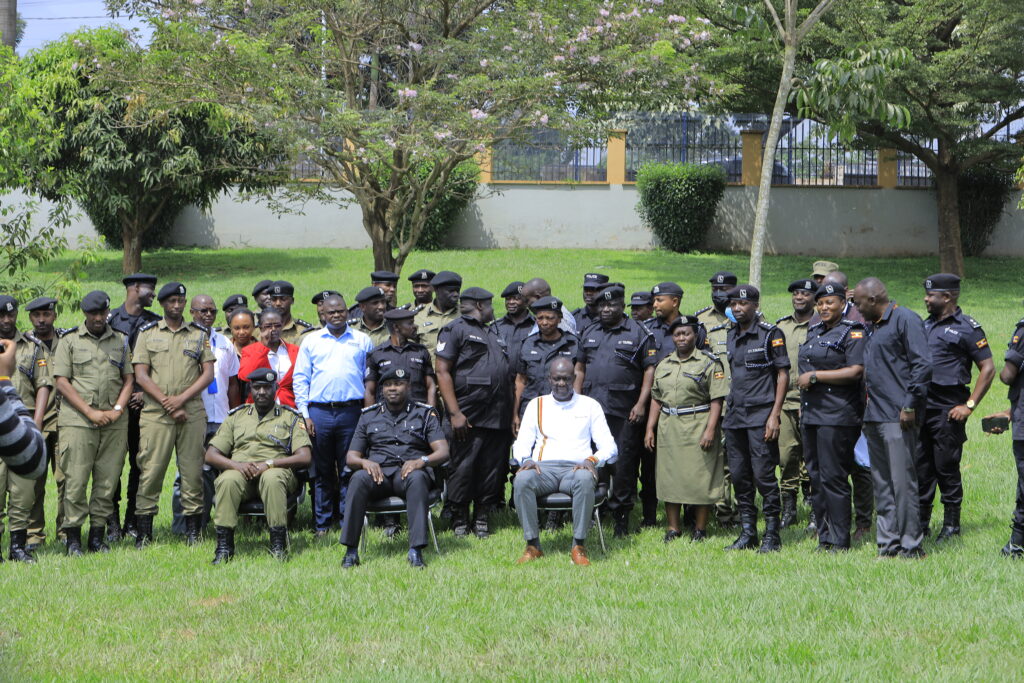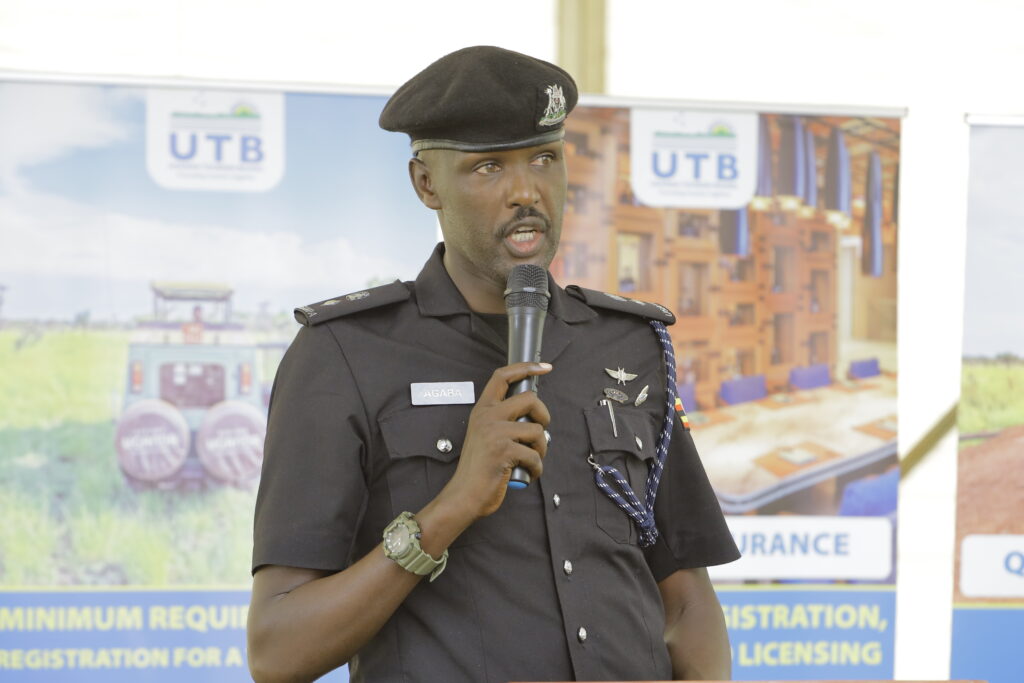To strengthen tourism sector oversight, tourism police in Uganda have intensified a crackdown on unlicensed facilities, underscored by an extensive training session held at the Police Headquarters in Naguru.
Led by the Uganda Tourism Board (UTB) and other stakeholders, this initiative aims to ensure compliance with regulatory standards as the country gears up to elevate its tourism sector on the global stage.
Background of Tourism License Enforcement in Uganda
Establishing tourism licensing is crucial for safeguarding the standards and reputation of Uganda’s tourism sector. For years, unlicensed facilities have operated outside national regulation, leading to inconsistent service quality and jeopardizing visitor safety. In response, the UTB Act 2008 and the Uganda Tourism regulations 2014 mandate that all tourism operators meet specific standards and obtain licenses to enhance transparency and accountability.
Deputy CEO of the UTB, Bradford Ochieng emphasized that the crackdown marks a critical step toward realizing a vision of high-quality tourism. “It is essential for Uganda to uphold a standard of service that reflects our commitment to excellence,” he remarked during the session. This licensing initiative forms part of a broader effort to align Uganda with the East African Community (EAC) Protocol on Tourism Standardization, which aims to harmonize standards across member states, facilitating regional integration and competitive positioning.
Licensing Uptake and Challenges

Despite Uganda’s considerable strides in promoting tourism, uptake of licensing remains alarmingly low. According to the Uganda Tourism Board, only about 200 of registered facilities currently hold valid licenses of the 4000 hospitality facilities in the country. The reluctance stems from a lack of awareness, complex application processes, and limited enforcement—factors that authorities have acknowledged and are working to address through outreach and supportive programs.
“Many facilities either do not understand the value of licensing or feel deterred by procedural bottlenecks,” explained Samora Semakula, the UTB Quality Assurance Manager “Our goal is to simplify the process and educate stakeholders on the long-term benefits of compliance.”
International and Regional Standards Guiding Tourism Licensing
Uganda’s licensing framework adheres to both regional and international standards, including protocols established by the EAC and UN World Tourism Organization (UNWTO). Through the EAC Protocol, member states—including Kenya, Tanzania, and Rwanda—have seen tourism quality significantly improve, leading to heightened visitor satisfaction and increased tourism revenue.
The UTB Act 2008 in Uganda sets forth strict guidelines for facilities to operate legally, ensuring that services meet quality benchmarks. However, while countries such as Kenya and Tanzania have successfully implemented these standards, Uganda lags behind, struggling with insufficient infrastructure and weak regulatory enforcement.
Consequences of Unlicensed Facilities: The NAM and G77 Conferences

Uganda’s lack of licensed tourism facilities has also impacted its ability to host major international events. For instance, the Non-Aligned Movement (NAM) and G77 Conferences brought an influx of visitors but underscored Uganda’s hospitality challenges. The absence of licensed hotels and tour operators affected the quality of services rendered, highlighting the need for rigorous licensing to enhance visitor experience and uphold the nation’s image on the international stage.
Deputy Director of Counter Terrorism Patrick Lawot stressed the importance of licensed facilities in ensuring security. “Without licensing, we lack accountability measures, which compromises not only service quality but also public safety,” he stated. Lawot stressed that theirs is to ensure compliance and will work with in the confines of the law to ensure that.
Benefits of Tourism Licensing: Global and Regional Insights
Uganda can look to neighboring countries for the transformative benefits of tourism licensing. For example, Kenya’s stringent standards in tourism have enhanced its reputation, attracting more investment and tourists. Internationally, countries with robust licensing programs, such as Switzerland and New Zealand, have successfully positioned themselves as prime tourist destinations by building a reputation of quality and safety.
What Uganda Stands to Gain from Licensing

By ramping up enforcement, Uganda stands to reap significant economic and reputational benefits. A licensed and well-regulated tourism sector would attract more visitors, improve service quality, and increase job opportunities. Bradford Ochieng the Deputy CEO of UTB, noted, “Tourism is not only about showcasing our culture but also ensuring that every visitor experiences the best of what Uganda offers. Licensing is foundational to that mission.” He adds, in extreme cases, the non-compliant will face the law or stand closure of their premises.
The recent training session for tourism police at Naguru represents a significant step toward enforcing Uganda’s tourism standards, aligning with regional protocols and international benchmarks. While challenges remain, the benefits of a licensed tourism sector are undeniable. With continued commitment, Uganda’s tourism sector could soon be an exemplary model within East Africa, ultimately benefiting its economy and solidifying its place on the global tourism map


